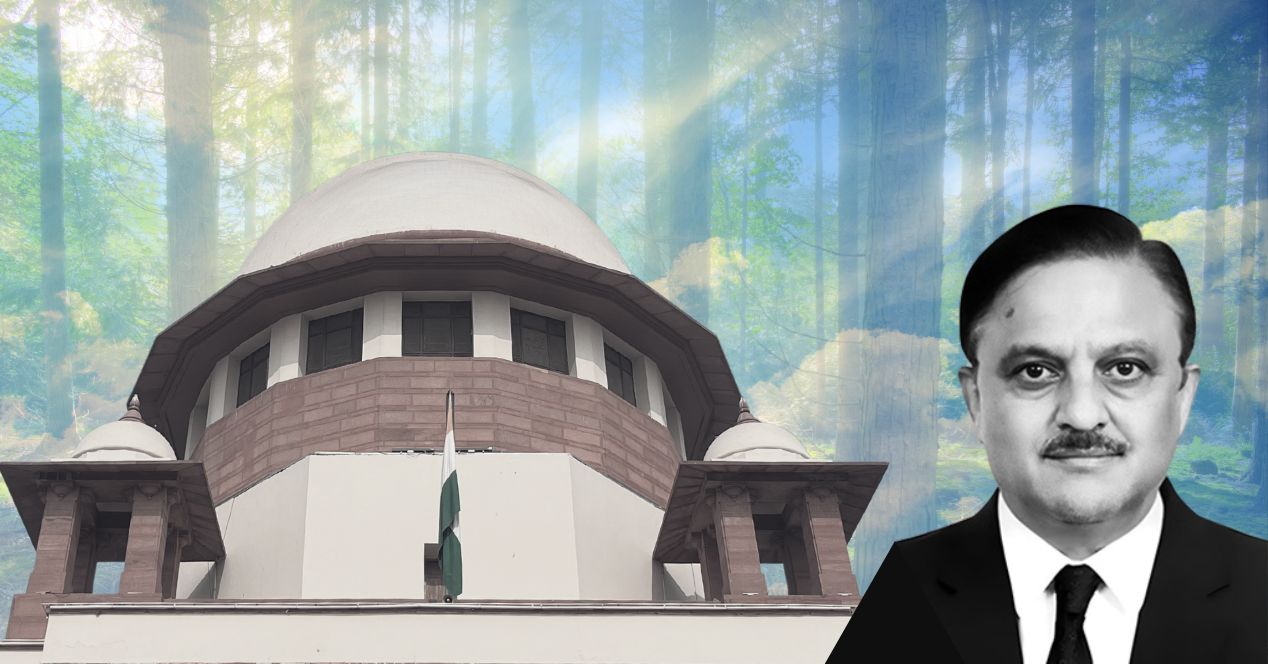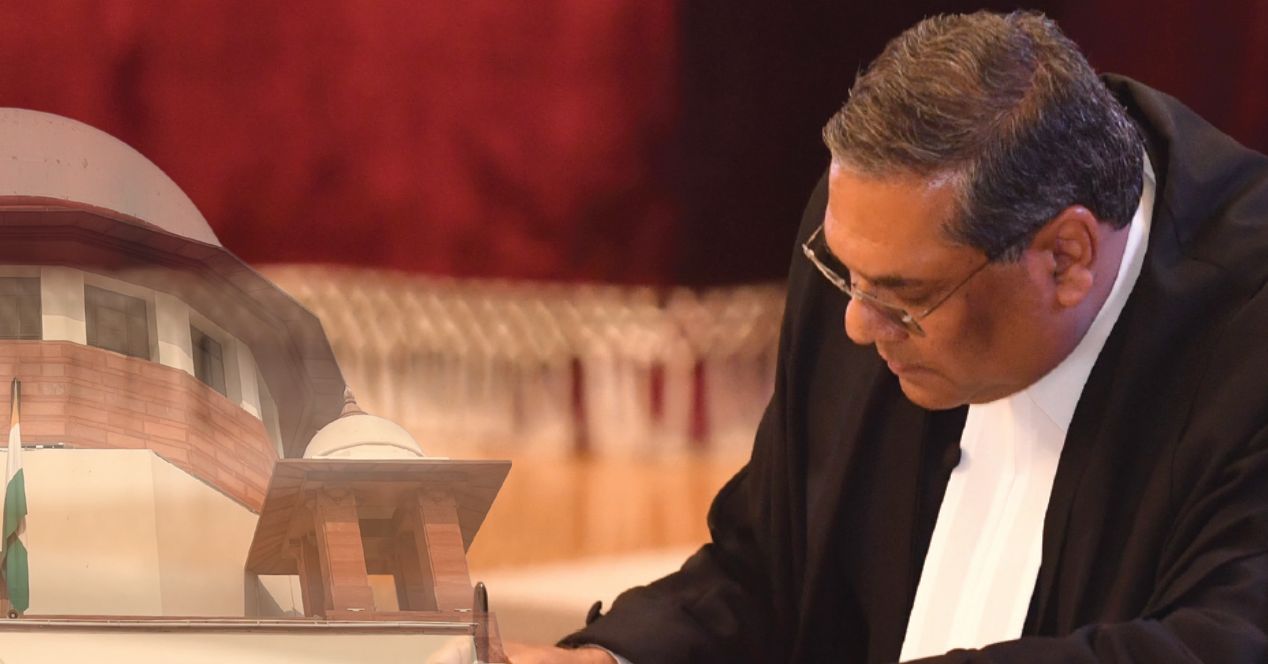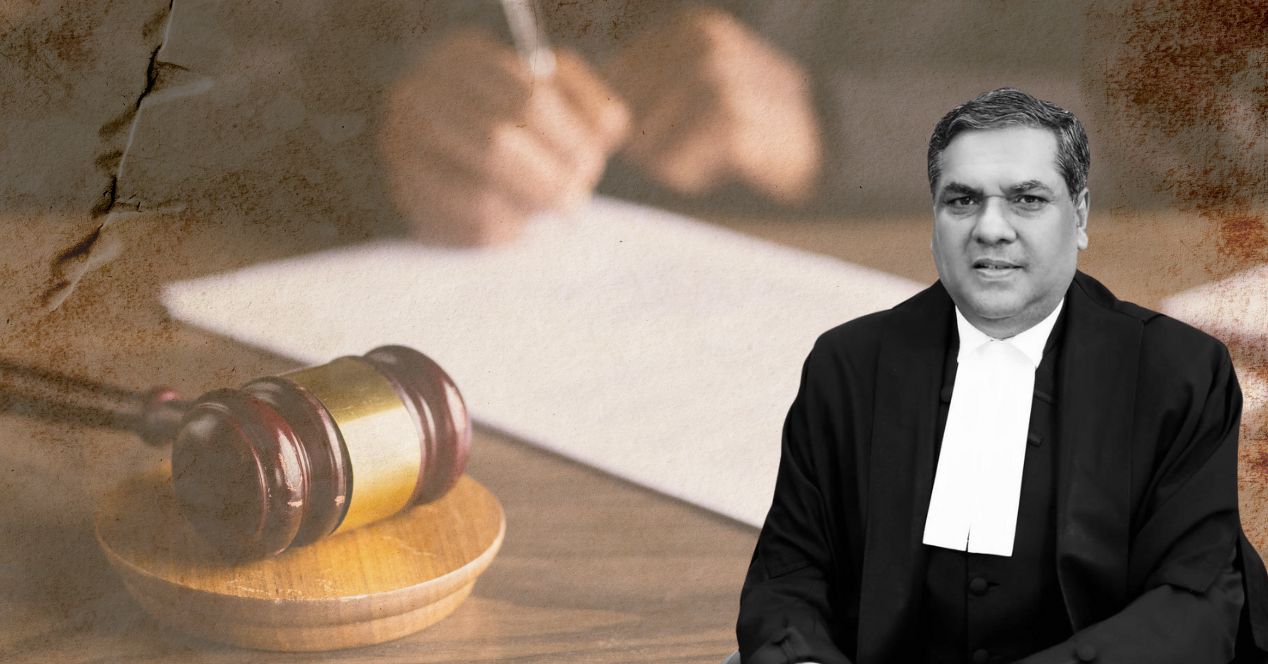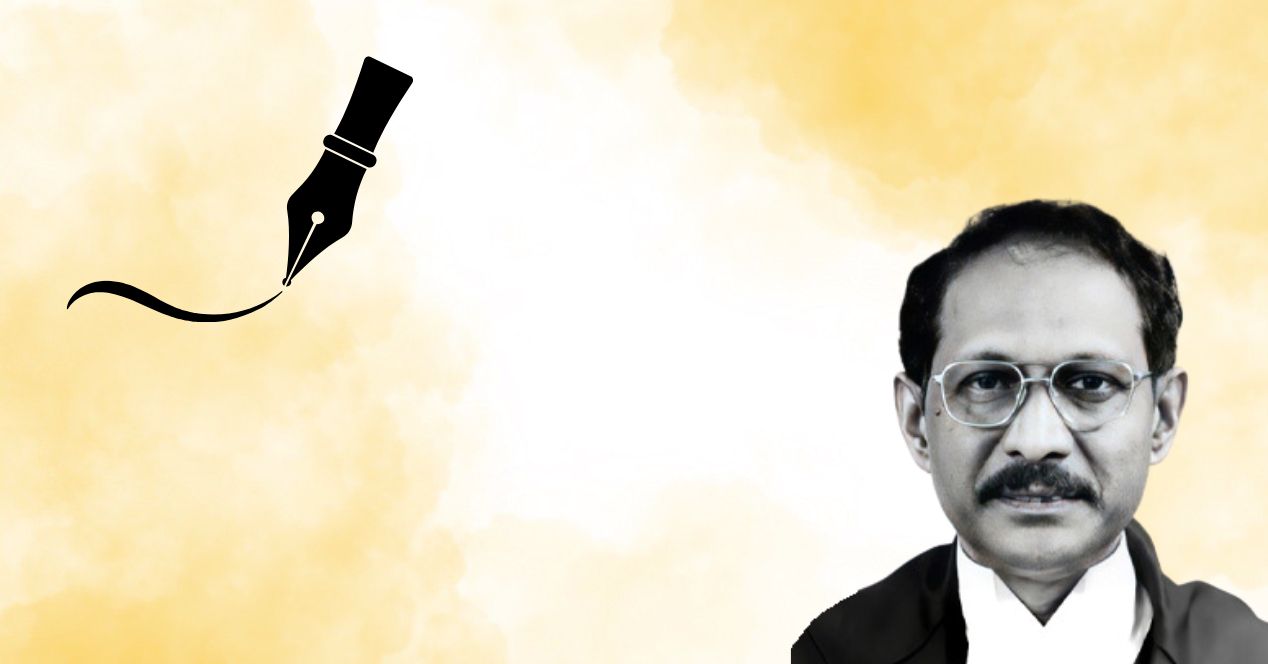Analysis
Justice Bela Trivedi’s Notable Judgements
Known to be ‘tough’, especially in personal liberty matters, Justice Trivedi delivered key opinions on affirmative action and POCSO issues

After three-and-a-half years on the Bench, Justice Bela Trivedi’s last working day in the Supreme Court was 16 May 2025. Her official retirement is scheduled for 6 June, which falls during the Court’s summer break. During her time in the Court, Justice Trivedi authored 61 judgements and was a part of 276 benches*.
Justice Trivedi was only the eleventh woman judge in the history of the top court. She started her judicial career at the City Civil and Sessions Court at Ahmedabad, where her father was already serving as judge. While she was a District Court judge, she was deputed as Law Secretary to the Gujarat state government headed by Chief Minister Narendra Modi. She was then appointed to the Gujarat and Rajasthan High Courts before her elevation to the Supreme Court on 31 August 2021.
In this article, we list Justice Trivedi’s notable judgments in the Supreme Court. We have grouped them thematically into categories including reservations, arrest and bail, and sexual offences against children. Her jurisprudence reflects a cautious and traditional approach, prioritising textual interpretation over socio-political considerations.
Drawing lines between caste and class
Justice Trivedi authored several decisions which sparked discourse on reservation policies. She authored the majority opinion in Janhit Abhiyan v Union of India (2022), where the Court upheld the 103rd Constitutional Amendment, which grants 10 percent reservation to Economically Weaker Sections (EWS) in admissions to educational institutions and government jobs. In this decision, Justice Trivedi framed caste and class as legally distinct categories, warning that caste-based reservation should be reviewed lest the country become a caste divided society permanently.
Justice Trivedi’s lone dissent on the seven-judge Bench in State of Punjab v Davinder Singh (2024) has been referenced as a reflection of her “independent thinking.” In a landmark decision, the Supreme Court held that it is constitutionally valid to create sub-classifications in the Scheduled Caste and Scheduled Tribe categories. The majority judgement was seen as an acknowledgement of substantive equality, which accounts for the differential treatment of different groups.
In her 85-page dissent, Justice Trivedi argued that castes that are notified by the President to be included in a constitutional Schedule form a “homogenous class,” even as she acknowledges that the community is composed of different castes and tribes. She found that the power to create sub-classifications rests solely with Parliament and states cannot tamper with this Presidential List. Her reasoning is consistent with a textualist approach, marked by a close adherence to the letter of the Constitution rather than reliance on evolving socio-political contexts.
Jurisprudence on POSCO and child protection
In November 2021, in Attorney General v Satish, a three-judge Bench comprising Justice Trivedi overturned a controversial acquittal by the Bombay High Court. A 12-year-old child had been groped through her clothing. The Nagpur Bench had ruled that a conviction under Section 7 of the Protection of Children from Sexual Offences Act, 2002, requires direct physical contact.
Justice Trivedi rejected this interpretation, finding that it does not uphold the legislative intent of protecting children from sexual assault. She noted that “the most important ingredient for constituting the offence of sexual assault is the ‘sexual intent’ and not the ‘skin to skin contact’ with the child.”
The day before her retirement, Justice Trivedi was part of the bench which reviewed a 2019 order in Re: Alarming Rise in the Number of Reported Child Rape Incidents and urged the Central and state governments to prioritise the creation of special courts dedicated to hearing POCSO cases. Justice Trivedi observed that this was required to resolve the high pendency of child sexual assault cases, particularly in Tamil Nadu, Bihar, Uttar Pradesh, West Bengal and Maharashtra.
Rulings in favour of prosecuting authorities
In Radhika Agarwal v. Union of India (2025), Justice Trivedi was part of a three-judge Bench which upheld the constitutional validity of the “power to arrest” provisions for economic offences under the Customs Act, 1962 and the Central Goods and Services Tax Act, 2017.
In her concurring opinion, she observed courts should be cautious about intervening when reviewing arrests under special laws like the Prevention of Money Laundering Act, the Unlawful Activities (Prevention) Act (UAPA), or the Customs and GST Acts, since these offences are of a “serious nature” and affect the “sovereignty and integrity of the nation.” She warned against “frequent or casual interference of the courts in the functioning of the authorised officers,” emphasising that “punitive and preventive detention” are both allowed under the Constitution.
Justice Trivedi has consistently advocated for judicial restraint, and her strict approach to awarding bail is evident in decisions such as Anoop Bartaria v Enforcement Directorate (2023), Union of India v. Barakathullah (2024) and Union of India v Kanhaiya Prasad (2025). In CBI v. Kapil Wadhawan (2024), Justice Trivedi’s ruling established a high threshold for default bail. The two-judge Bench held that the right to default bail is lost once a valid chargesheet is filed and cognizance is taken by the court. It further noted that the right is not restored by the pendency of investigation against co-accused, minor procedural lapses or even incomplete disclosure in the chargesheet.
Regulating the legal profession
Justice Trivedi has been on the Bench in several matters concerning misconduct and accountability within the legal profession. In N. Eswaranathan v. State (2025), she directed the temporary removal of an Advocate-on-Record from the register for abuse of process. In Bhagwan Singh v. State of UP (2024), she addressed the issue of fraudulent legal representation and noted that the sanctity of legal practice is compromised when advocates misrepresent facts.
In Bar of Indian Lawyers v DK Gandhi PS National Institute of Communicable Diseases (2024), a two-judge Bench led by Justice Trivedi held that advocates are not service providers under the Consumer Protection Act, 1986, paving the way for lawyers’ immunity from suits alleging deficiency in services. This Judgement overruled a National Consumer Disputes Redressal Commission (NCDRC) verdict from 2008.
Tough on bail for activists and Opposition leaders
Justice Trivedi has frequently delivered judgements in cases relating to Opposition politicians and political parties. In 2024, she rejected the bail application of Aam Aadmi Party leader Satyendar Jain in a money laundering case. In the same year, she was also part of the Bench that delivered a split verdict in the matter involving an FIR against Telugu Desam Party president N. Chandrababu Naidu in an alleged skill development scam (This was before the TDP allied with the BJP following the 2024 General Election). Justice Trivedi upheld the invocation of the corruption charges, ruling that the procedural safeguards for public servants under Section 17A of the Prevention of Corruption Act, 1988 do not apply to offences committed before its enactment.
Justice Trivedi has consistently denied relief to activists and political dissenters in cases under the UAPA. In 2024, she dismissed the bail applications of Gulfisha Fatima and Sharjeel Iman, booked in the 2020 Delhi riots case, citing their pendency before the Delhi High Court, even though the petitions were filed precisely due to undue delays. In 2023, she stayed the Bombay High Court’s order granting bail to Mahesh Raut, an accused in the Bhima Koregaon case, overruling the finding that there were “no reasonable grounds to believe the accusations were prima facie true.”
In October 2022, Justice Trivedi led a Special Bench which convened on a Saturday to suspend the acquittal of G.N. Saibaba and five others, noting that procedural lapses by the prosecution were overridden by the “perceived peril to national security.” Saibaba was re-acquitted in March 2024 and died months later due to health complications linked to his prolonged incarceration. Several other activists, including Umar Khalid and Hany Babu, have tactically withdrawn bail pleas when listed before Justice Trivedi’s Bench.
However, there is criticism that Justice Trivedi’s ‘tough on crime’ stance has not been held uniformly. In August 2024, a Bench led by her declined to cancel bail granted to an accused in the Gauri Lankesh assassination case. Earlier that year, she granted protection from arrest to BJP Minister Nisith Pramanik in an attempted murder case.
“Not moulding relief to suit popular sentiment”
Justice Trivedi’s decisions have drawn polarised responses. Her strict and conservative approach in delivering judgements, reluctance to grant bail and orders in favour of prosecuting authorities (often at the cost of individual liberty) have often caused friction with members of the Bar.
In the Ceremonial Bench held in her honour on her final working day, Solicitor General Tushar Mehta praised Justice Trivedi for never moulding relief “to suit the popular sentiment” and for her “courage and conviction to displease people.” However, her last day also saw a snub from the Supreme Court Bar Association and the Supreme Court Advocates on Record Association, which broke tradition and didn’t organise farewell functions for her.
In her speech on the Ceremonial Bench, Justice Trivedi stood by her judicial approach, maintaining that judicial independence lies in strict adherence to the constitutional text.
* Data collected from Manupatra on 26 May 2025




